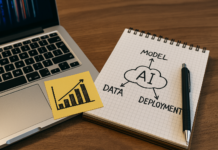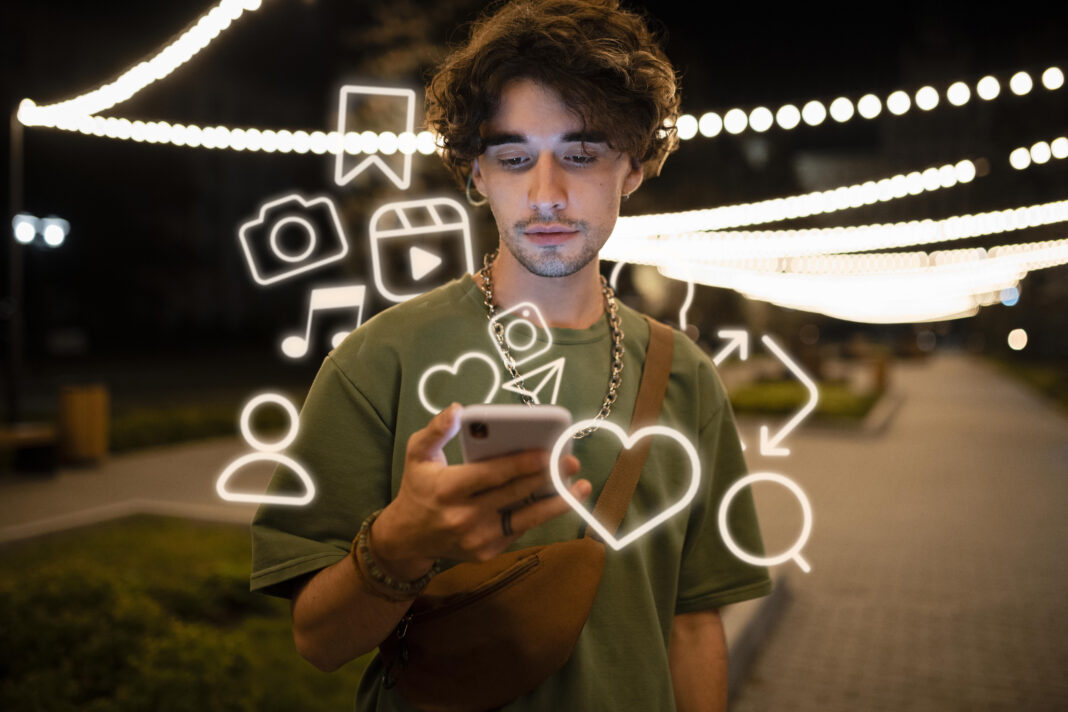Personalized Marketing on Social Media: How Data, AI, and Emotion Drive Modern Engagement
Introduction
The digital age has changed how people connect, shop, and communicate. Audiences today no longer respond to mass advertising that speaks to everyone and no one. Instead, they expect relevance, empathy, and personalization. This shift has transformed how brands operate, leading to the rise of Personalized Marketing on Social Media.
By combining behavioral data, artificial intelligence, and emotional storytelling, businesses now build stronger relationships with their audiences. Personalized Marketing on Social Media allows companies to understand individual preferences, tailor messages, and deliver meaningful experiences that inspire trust and loyalty.
It is not just a marketing strategy; it is the evolution of digital communication. In an era of endless content, personalization has become the secret ingredient that captures attention and converts engagement into real action.
The Evolution of Personalization in Marketing
The journey toward Personalized Marketing on Social Media began with simple tactics like personalized email greetings. However, as social platforms evolved, personalization moved from basic customization to intelligent, real-time adaptation.
Platforms such as Facebook, Instagram, LinkedIn, and TikTok now collect billions of data points daily. They analyze what users like, share, comment on, and follow. These behaviors form the foundation for algorithms that tailor content to each individual.
In the past, marketing segmentation focused on demographics such as age or location. Today, it includes psychographics and behavior, allowing marketers to understand motivations and emotions. Personalized Marketing on Social Media uses these insights to create content that feels relevant, timely, and authentic.
This transformation has changed marketing from a broadcast model to a conversational one. Instead of pushing messages, brands now listen, learn, and respond based on audience behavior.
The Power of Data in Personalization
Data is the lifeblood of Personalized Marketing on Social Media. Every click, view, and scroll reveals something about human intention. When analyzed correctly, this data allows marketers to deliver content that feels personal and meaningful.
Three main types of data drive personalization:
-
Behavioral Data: Tracks interactions such as likes, shares, and time spent on posts.
-
Demographic Data: Covers age, gender, profession, and geographic location.
-
Psychographic Data: Reveals interests, attitudes, and emotional drivers.
By combining these data types, marketers can understand not only who their audience is but why they act the way they do.
AI-powered tools interpret data at lightning speed. They detect patterns, predict behavior, and recommend strategies for higher engagement. For example, Netflix and Spotify use machine learning to predict what users will enjoy next. The same logic applies to Personalized Marketing on Social Media, where algorithms decide when and how to display content for maximum impact.
Data-driven personalization creates value for both sides: users get relevant experiences, and brands build stronger connections that translate into measurable business growth.
Artificial Intelligence and Predictive Personalization
Artificial intelligence has taken Personalized Marketing on Social Media to a new level. AI algorithms analyze millions of interactions to identify hidden correlations between behavior, emotion, and intent.
With AI, marketers can predict what content users will engage with before they even act. Machine learning models enable:
-
Predictive Targeting: Anticipating customer needs based on previous interactions.
-
Real-Time Adaptation: Adjusting messages instantly according to live feedback.
-
Content Optimization: Testing multiple versions of visuals and text to find the best performer.
-
Sentiment Analysis: Understanding the emotional tone of comments and reactions.
AI turns social media into a living system that learns continuously. When users interact, algorithms refine their understanding, making personalization more accurate with every engagement.
This continuous feedback loop helps marketers create campaigns that feel conversational and intuitive. Instead of overwhelming users with generic promotions, brands can speak directly to their interests and emotions.
The Emotional Dimension of Personalized Marketing
While technology powers personalization, emotion gives it meaning. The most effective Personalized Marketing on Social Media strategies combine analytics with empathy.
People do not just buy products; they buy experiences and stories. Social media is where emotions are expressed, shared, and remembered. Successful personalization connects with these emotions in an authentic way.
Brands like Nike, Spotify, and Airbnb have mastered emotional personalization by using storytelling. Nike’s campaigns feature individual athletes whose personal stories inspire millions. Spotify’s “Wrapped” uses user data to create emotional summaries of each listener’s year, turning analytics into personal identity.
Emotional personalization goes beyond algorithms. It creates belonging. It turns users into community members who see themselves reflected in the brand’s story.
Ethics, Privacy, and Transparency
With great power comes responsibility. As Personalized Marketing on Social Media becomes more advanced, questions about privacy and ethics have taken center stage.
Consumers are increasingly aware that their online actions generate data. Incidents such as the Cambridge Analytica case have heightened concerns about misuse. As a result, users demand transparency and control.
Ethical personalization focuses on consent and clarity. Brands must explain how data is used and how it benefits the user. Companies that adopt responsible practices earn trust, which is the foundation of long-term loyalty.
Regulations such as GDPR and CCPA have established new standards for data protection. Social platforms have also introduced stricter privacy settings. In this environment, personalized marketing must shift from targeting to serving. The focus should be on delivering genuine value rather than manipulation.
When personalization is transparent and respectful, it strengthens relationships. It transforms marketing from an interruption into a service that improves user experience.
AI Influencers and the Next Stage of Personalization
A major evolution in Personalized Marketing on Social Media is the rise of AI-powered influencers and virtual creators. These digital personalities use data-driven insights to engage specific audience segments in ways that feel authentic.
AI influencers like Lil Miquela and Aitana Lopez are built entirely through algorithms. They post, interact, and respond based on predictive engagement models. For marketers, this represents a new frontier of personalization—one that scales emotional connection without losing individuality.
AI-driven creators allow brands to maintain consistent engagement across large audiences. Their content is adaptive, adjusting tone, visuals, and messaging according to user feedback.
However, this innovation also raises questions about authenticity and ethics. Can digital personalities truly build trust? The answer depends on transparency. When brands disclose their use of AI while maintaining honesty, these virtual figures can enhance the storytelling experience.
The line between reality and simulation continues to blur, but for Personalized Marketing on Social Media, it presents an opportunity to redefine connection in a digital age.
Strategic Advantages of Personalization
The benefits of Personalized Marketing on Social Media are measurable and substantial.
-
Improved Engagement: Personalized messages increase interaction rates.
-
Higher Conversion: When users feel understood, they are more likely to purchase.
-
Cost Efficiency: Targeted campaigns reduce wasted impressions.
-
Customer Retention: Relevant experiences foster long-term loyalty.
-
Real-Time Feedback: AI systems adapt instantly to changes in behavior.
Personalized marketing transforms one-way communication into a dialogue. It acknowledges individuality and turns data into empathy. Brands that master this balance achieve sustainable growth and cultural relevance.
For further insights into digital strategies and real-world case studies, explore the Startupik Marketing category.
Challenges in Execution
Despite its advantages, executing Personalized Marketing on Social Media presents real challenges. Many brands lack integrated data systems or struggle to combine creativity with technology.
Common difficulties include:
-
Disconnected data sources that limit personalization depth.
-
Over-personalization that feels invasive or artificial.
-
Constantly changing platform algorithms that disrupt campaigns.
-
Limited human oversight, resulting in tone-deaf automation.
To overcome these barriers, brands must align their creative, analytical, and ethical strategies. Success requires collaboration among marketers, data scientists, and designers.
The most successful organizations treat personalization as an ongoing process, not a one-time tactic. They constantly learn from data while keeping the human element at the center of every campaign.
The Future of Personalized Marketing on Social Media
Personalization Trends Shaping 2025 and Beyond
The landscape of Personalized Marketing on Social Media continues to evolve rapidly as technology, psychology, and culture intersect. In 2025, personalization will go beyond traditional targeting to focus on contextual understanding.
Emerging trends include:
-
AI-Driven Contextual Personalization:
Artificial intelligence is moving from analyzing static data to understanding context. It will soon predict user intent based on time, emotion, and behavior patterns. This means that marketing messages will appear exactly when they are most relevant, enhancing natural engagement. -
Voice and Conversational AI:
With the rise of smart assistants like ChatGPT-based bots, Alexa, and Google Assistant, brands will use voice-based personalization to communicate authentically. Personalized voice experiences will connect marketing with daily routines, creating a deeper emotional layer. -
Micro-Influencers and Community-Based Personalization:
Rather than relying solely on celebrities, brands are turning to micro-influencers who share genuine relationships with niche communities. This grassroots approach makes Personalized Marketing on Social Media more relatable and human. -
AI Content Co-Creation:
Artificial intelligence will help users and brands collaborate in content creation. Consumers will not only consume marketing but actively participate in shaping it. This shared authorship builds trust and belonging. -
Augmented and Virtual Reality Personalization:
As AR and VR mature, personalization will expand into immersive experiences. Users may soon walk through virtual stores that adapt to their preferences in real time.
The future of personalization is not about automation alone but about augmentation. AI enhances human creativity rather than replacing it.
Data Ethics and Human Oversight in the AI Era
As technology advances, the ethical management of data becomes increasingly vital to Personalized Marketing on Social Media. Data is power, but without responsibility, it becomes a liability.
The biggest challenge for marketers in 2025 is ensuring transparency in automated decision-making. AI systems must explain why they deliver certain messages or recommendations. This is known as explainable AI, a concept gaining traction among responsible marketers.
To preserve user trust, human oversight remains essential. Even the most advanced systems require ethical supervision. Decision-making about sensitive topics, such as health or political content, must always involve human judgment.
Democratizing data means allowing users more control over their digital identity. Brands that give audiences visibility into how personalization works will lead the next era of ethical marketing.
Transparency turns personalization from a surveillance tool into a service that empowers people.
Integrating Emotional Intelligence with Machine Learning
The future of Personalized Marketing on Social Media depends on merging machine learning with emotional intelligence. Algorithms can process data, but emotion gives meaning to interaction.
AI is evolving toward emotional awareness. New models can recognize tone, sentiment, and even facial expressions in visual content. This capability allows brands to respond empathetically rather than mechanically.
For instance, if a user expresses frustration on Twitter, an AI-driven customer support system can adjust its tone, offering reassurance rather than automation. Similarly, if a user celebrates a milestone on Instagram, personalized messages can amplify positive emotions.
Emotional intelligence in personalization is about respect. It acknowledges users not as data points but as individuals with unique stories. When brands master emotional understanding, they move from communication to connection.
Personalized Storytelling: The Art of Connection
Great marketing has always been about storytelling, but Personalized Marketing on Social Media transforms storytelling into a two-way experience. Instead of telling one universal story, brands now adapt narratives to fit each audience segment.
Personalized storytelling combines identity, relevance, and timing. It uses data to inform creativity, not replace it. Brands that understand their audience’s motivations can craft messages that feel personal yet universal.
A successful example is Spotify’s “Wrapped,” which personalizes storytelling for each listener by turning data into emotion. Similarly, Airbnb’s social campaigns personalize experiences based on traveler interests, making users feel like protagonists of their own journeys.
The most effective personalized storytelling does three things:
-
Recognizes the user’s individuality.
-
Reflects shared values.
-
Invites participation.
This approach transforms marketing from persuasion into collaboration.
The Role of Influencers and Authentic Communities
Authenticity is the currency of modern marketing. Personalized Marketing on Social Media thrives when it connects through trust, and trust grows in communities built on shared experiences.
Influencers play a vital role in this system. Instead of broadcasting mass messages, they act as bridges between brands and micro-communities. Their credibility gives personalization a human face.
AI now assists in influencer matchmaking by analyzing engagement patterns and audience overlap. This helps brands identify voices that align naturally with their values.
However, the key to success is maintaining transparency. Sponsored content must feel organic, not forced. Influencers who disclose partnerships openly tend to gain higher credibility and stronger engagement.
The future of influencer marketing lies in balance: human authenticity supported by AI precision.
Measuring the Success of Personalization
In Personalized Marketing on Social Media, success cannot be measured solely by likes or impressions. The true metrics of personalization are relevance, retention, and satisfaction.
Advanced analytics systems now use multi-layered KPIs such as:
-
Engagement Depth: Time spent interacting with content or campaigns.
-
Emotional Resonance: Sentiment scores derived from user comments.
-
Conversion Quality: The long-term value of users rather than short-term clicks.
-
Churn Reduction: How personalization impacts customer loyalty over time.
Predictive analytics and attribution modeling enable brands to connect emotional engagement with revenue outcomes. This data-driven clarity allows marketers to refine campaigns continuously.
In essence, measurement is no longer about numbers but narratives. It tells whether a brand truly understands its audience.
Balancing Automation with Human Creativity
While automation is essential to scaling Personalized Marketing on Social Media, creativity remains the soul of marketing. AI can generate options, but human insight chooses meaning.
The best marketing strategies combine algorithmic intelligence with artistic intuition. Data reveals what works; creativity explains why it works.
Marketers must ensure that AI enhances, not overshadows, human imagination. Content created purely by algorithms risks losing emotional warmth. Successful brands use AI as a co-creator, not a replacement.
Collaboration between humans and machines is the foundation of sustainable personalization. It is not about replacing empathy but amplifying it through intelligent design.
Challenges for the Next Decade
Even as Personalized Marketing on Social Media grows more sophisticated, several long-term challenges remain:
-
Information Overload: As personalization becomes the norm, standing out will require deeper creativity.
-
Privacy Regulation: Governments will impose stricter rules on how data is collected and stored.
-
Algorithmic Bias: Ensuring fairness in AI recommendations is critical to avoid discrimination.
-
Cross-Platform Integration: Synchronizing personalization across multiple social platforms will remain complex.
-
Ethical Automation: Determining when machines should act and when humans should intervene.
Addressing these challenges demands continuous innovation. Marketers must treat personalization not as a fixed system but as an evolving dialogue between technology and humanity.
The Human Future of Digital Marketing
The next era of Personalized Marketing on Social Media will be defined by authenticity, transparency, and empathy. As AI becomes more intelligent, human creativity will become even more valuable.
Brands that view personalization as a tool for understanding, rather than manipulation, will lead the digital economy. Every interaction will serve as a moment of insight—a chance to listen, adapt, and connect.
The future belongs to those who can blend emotional intelligence with data-driven strategy. It will be a time when marketing no longer feels like advertising but like communication among people who understand one another.
For readers interested in exploring more about evolving marketing strategies, visit the Startupik Marketing category.
Conclusion: The Age of Intelligent Personalization
Personalized Marketing on Social Media represents the convergence of technology, psychology, and empathy. It is the natural progression of human communication in the digital age.
The best personalization does not simply predict behavior; it understands intention. It recognizes the human desire to be seen, heard, and valued.
As artificial intelligence advances, personalization will become more intuitive and emotionally aware. The challenge for brands will be to balance automation with authenticity, efficiency with empathy, and innovation with integrity.
In the coming decade, marketing will no longer be about reaching the most people but about reaching the right people in the right way. Personalized Marketing on Social Media will continue to shape how humanity connects, learns, and shares meaning in an increasingly digital world.
















































